It’s easy to get excited about an idea that has formed in your head — and you may even think it will work as an app. But as good as you think this idea is, you must conduct app market research before commencing with production.
But why not forge ahead with app development anyway? Counter to what most believe about developing apps, this isn’t a low-risk and low-cost endeavor. Consider that it costs between $16,000 to $32,000 to build an app with basic functionality and a minimal user interface (UI) in the US. But if you create an app with moderate complexity, expect to pay between $32,000 and $48,000, whereas a more sophisticated app may set you back over $72,000.
So, why invest so much in an idea without knowing how well it will do beforehand? As you can guess by now, it’s better to do your homework before turning your idea into an app, and we’ll show you how below.
What Must I Know About App Market Research?
App market research helps determine whether your app idea addresses a customer problem and if it aligns with current market trends. Even if you’re innovating on existing app ideas or introducing something unique, there’s no guarantee you’ll have a hit in your hands. However, thorough research will inform you if your app’s unique selling proposition (USP), core functionality, and release window will lead to success.
How Do I Conduct App Market Research?
Conducting app market research is a relatively simple process, but it’s time-consuming. Nevertheless, you can streamline the process by following these steps systematically:
- Target audience: Determine who you’re making the app for and create customer profiles based on demographic criteria like age, gender, location, language, interests, etc.
- Data collection: Gather up-to-date information about your target audience and market trends. Use services like Gartner, Google Trends, Knoema, Pew Research, and Statista. You can also conduct online surveys, in-person interviews, and even involve a focus group if it applies to your app.
- Competitor analysis: As part of your data collection efforts, you’ll want to determine who you’re competing against. Check the app stores to identify which apps are close to your app idea and the developers and publishers behind these. Your market research in the app stores will also let you know if your app idea has potential if similar apps are already doing well.
- Social media: Regularly check Instagram, TikTok, and X (formerly Twitter), as they’re often the first social platforms where fresh ideas and upcoming trends go viral.
- SWOT analysis: SWOT stands for strengths, weaknesses, opportunities, and threats. Use this method to ascertain how your app startup stacks up against competitors and their products. Ensure that you also include indirect competitors in your SWOT analysis, as they may become a threat in the future.
Why Should I Present My Research To Stakeholders?
No matter how hard you’ve worked on your app market research, it may require one or more revisions. And you’ll only know if you show it to all relevant stakeholders of your app startup, such as its leaders, investors, and development team. They’ll provide feedback on aspects of your research if they find any issues that you’ll subsequently remedy.
In Conclusion
App market research always precedes the development process. Ultimately, thorough research is a lifesaver for any app startup, as it reduces the risk of funding a project that can potentially fail.
Image: Pexels

